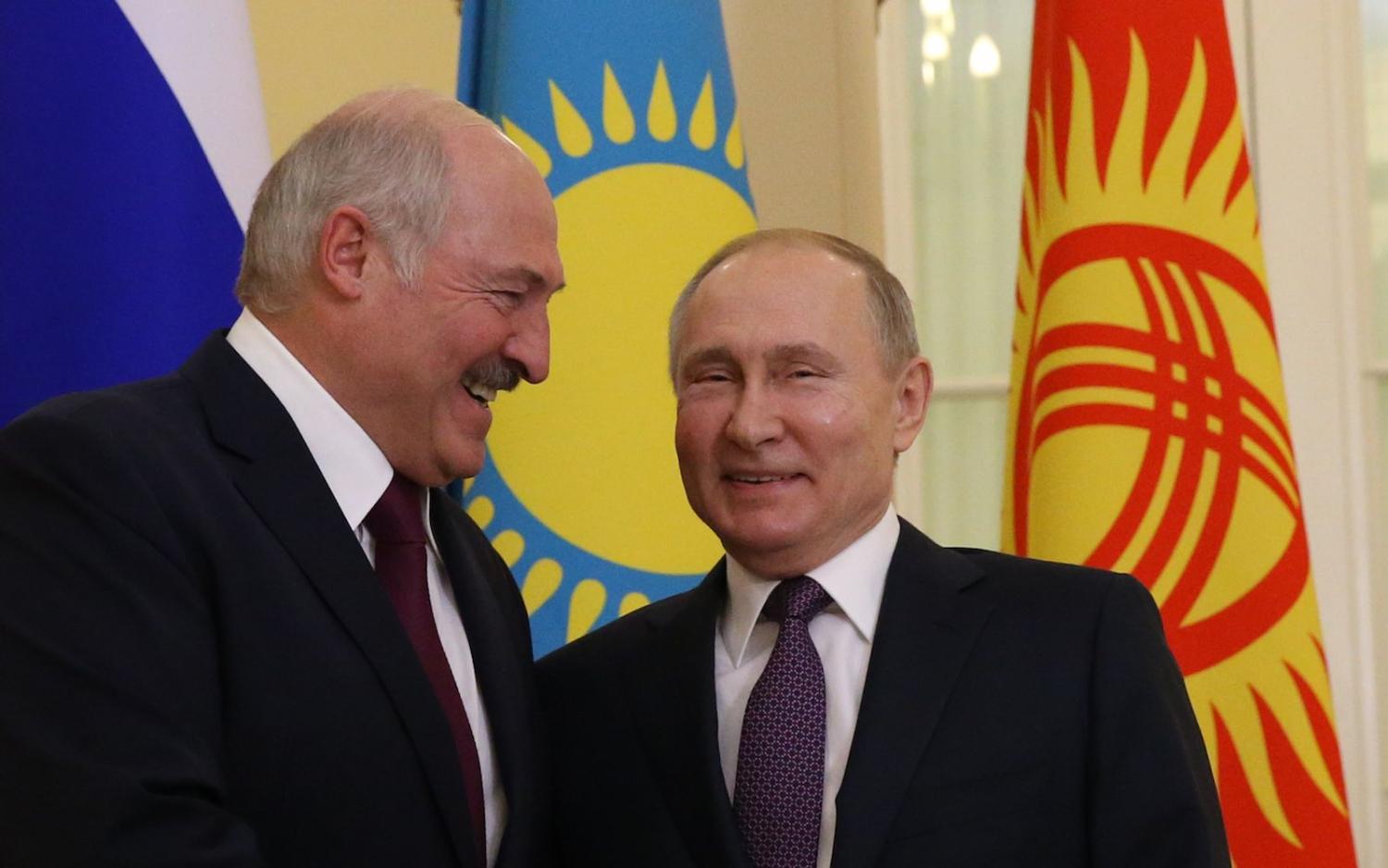Mass protests and nationwide strikes in Belarus did not result in the overthrow of President Alexander Lukashenko, but they have pushed the Eastern European country deeper into Russia’s geopolitical orbit. Moscow and Minsk have reportedly agreed on resuming Russia’s energy supplies to Belarus, which was the biggest obstacle in relations between the two allied countries, and in the near future they could sign several “historical” agreements.
Over the past few years, and particularly in 2019, Russia and Belarus had several energy disputes. Belarus has for years relied on Moscow for cheap energy and loans, but in January the Kremlin clearly demonstrated that the policy of cheap energy for its ally was a thing of the past. Russia halted oil supplies to Belarus, which forced the former Soviet republic to start diversifying its energy imports.
Lukashenko gradually intensified his anti-Russia rhetoric, and had already sought to improve relations with Western countries. In November last year, he visited Vienna and met with Austrian President Alexander Van der Bellen, and in February this year he hosted US Secretary of State Mike Pompeo. Belarus even reportedly bought 80,000 tonnes of US oil imported via Lithuania’s Klaipeda Port.
However, “the honeymoon” between the “last European dictator” and the West did not last for long. After the presidential election, held on 9 August, Belarusian opposition – allegedly backed by the West and also by certain Russian structures – staged mass protests and nationwide strikes that go on to this day. Western countries imposed sanctions on several Belarusian officials due to the post-election crackdown on anti-Lukashenko demonstrations. The 66-year-old leader appeared to have no choice but to look eastward and to agree on the Kremlin’s conditions.
“We could come to terms on many issues we couldn't agree on in the past. You and the prime minister of Belarus have done a huge amount of work to reconcile our views and even reach an agreement on many terms,” Lukashenko told Russian Prime Minister Mikhail Mishustin on 3 September.
Before the political crisis that hit Belarus in August, Russia firmly insisted on Belarus’s deeper integration into Russia in an exchange for cheap natural gas and oil supplies.
Although Belarusian and Russian officials have reportedly agreed on the future of energy trade between Minsk and Moscow, the country’s leaders are expected to make final decisions on the matters that are very sensitive and painful, especially for Belarus. Given that Lukashenko’s position has been weakened following the post-election turmoil, he will now have to make significant compromises to the Kremlin.
Before the political crisis that hit Belarus in August, Russia firmly insisted on Belarus’s deeper integration into Russia – the Belarus Union State – in an exchange for cheap natural gas and oil supplies. Since Lukashenko felt compelled to play the Russian card, Moscow will likely provide just a symbolic discount for its energy, and the Belarusian leader will have to agree on all of the Russia’s terms regarding both the energy trade and the Union State. According to Russian Energy Minister Alexander Novak, the oil and gas prices are set taking into account the market situation, and the pricing formula will remain unchanged. In other words, Belarus could even pay the old oil and gas price, if Lukashenko and his Russian counterpart Vladimir Putin do not make a long-term deal in Moscow in the next few weeks.
Belarus is supposed to receive 24 million tonnes of Russian oil in 2020 and as much in 2021, but if the Kremlin does not provide a significant discount, the Belarusian economy could be in trouble. Given that the Baltic countries – Lithuania, Latvia and Estonia – have imposed sanctions on Belarus, Minsk will now have to export its products via Russian ports, which will make the country even more dependent on Russia.
It is worth noting that Moscow is reportedly supporting the Belarusian economy with $4 billion annually by providing various subsidies. Since, as the saying goes, there is no such thing as a free lunch, Belarus will likely have to make additional concessions to Moscow in order to keep getting financial support. Or it already made some – Lukashenko recently replaced his security chiefs, and there are indications that the replacement was done under pressure from Moscow.
Besides energy, security issues are expected to be on the top of the agenda during the upcoming talks between Lukashenko and Putin, as the countries’ defence ministers are expected to “prepare the road map talk”. It’s possible that Belarus will have to agree on hosting another Russian military facility – something Lukashenko strongly opposed just a couple of years ago.
Finally, Putin and Lukashenko have already reportedly agreed that Belarus would be among the first foreign countries to receive the Russian coronavirus vaccine, which means the Belarusian leader has fundamentally changed his Covid-19 policy. It is worth remembering that “the last European dictatorship” was the only country in Europe, besides Sweden, that did not impose a state of emergency, did not practice social distancing, and did not implement the strict measures that locked down the rest of the continent this spring. Lukashenko even called the coronavirus “a psychosis” and said “it’s better to die standing on your feet than to live on your knees”, defending his Covid-19 policy that even Russia heavily criticised.
Even though the opposition did not manage to overthrow Lukashenko, changes have come to Belarus nevertheless. The country will now have closer ties with Russia than ever before.

